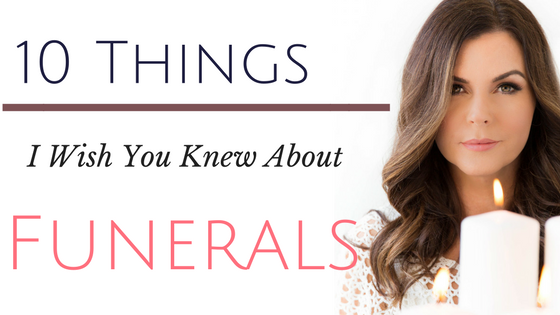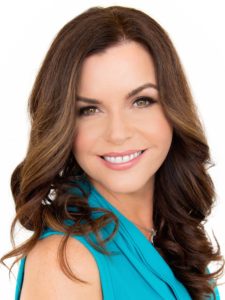
Funerals may not be part of your Sunday family dinner conversation, but—having grown up with funerals in our family business—they have been part of mine for virtually my whole life. Couple that with my vocation as a Life-Cycle Celebrant, and I’ve learned a few things about good end-of-life ceremonies. Here are the top ten things that I wish you knew about funerals:
1. It’s Not About Closure.
The poet Rumi wrote, “The wound is the place where the light enters you.” I think of funerals as “the light” and have to admit that I cringe a little every time I hear the word “closure” when used to describe the purpose of a funeral. While I’m not a grief expert, for me funerals are about opening and acceptance. While the wound may heal eventually, I believe the complicated feelings of loss cannot be contained and closed within a day.
2. Cremation Does Not Mean “No Funeral.”
There is a tendency to think that just because cremation has been chosen, no funeral need take place. But cremation is not a funeral service option, it’s a disposition choice—just like earth burial—and offers many choices for meaningful and creative funerals. It shouldn’t replace a meaningful ceremony. (For more cremation ideas, read “It’s Time for Grandma to Come Out of the Closet.”)
3. They Don’t Have To Break the Bank To Be Meaningful.
We’ve all heard the expression, “It’s the thought that counts,” and in the case of funerals especially, it couldn’t be truer. I’ve been to all kinds of funerals—expensive funerals that were not terribly meaningful and meaningful funerals that were not terribly expensive. Regardless of your budget—whether you’re popping vintage champagne or serving up your mother’s favourite earl gray tea—with a little creativity and thought, you can experience a memorable, healing and authentic funeral.
4. Clapping Is Allowed.
Julia just sang her heart out in a beautiful tribute to her mother and heads back to her seat in silence while everyone in attendance feels awkward. Where did this silly rule that says we shouldn’t show our appreciation during funerals come from? Most people who engage me as a funeral Celebrant want their friends and family to feel comfortable, relaxed, and appreciated. So in my welcoming comments, I always give permission to clap. Funerals are about gratitude, so let’s put our hands together!
5. They Don’t Have To Be Sad. But They Don’t Have To Be Happy Either.
I hear it all the time: “We don’t want people to feel sad.” But sad is what we are supposed to feel when someone we care about dies—and trying to create a “happy funeral” is not always possible. That doesn’t mean the ceremony has to be somber or void of laughter and moments of joy. A good funeral provides space for all emotions to be felt, acknowledged, and expressed. To deny ourselves that safe space to feel sadness is to deny and diminish the value and purpose that funerals offer us as human beings. (See “Celebration of Life or Denial of Death?”
6. There Are No Rules.
“Can we really do that?” YES you can! Because when it comes to funerals, there are no rules and there is no right or wrong. What brings one individual solace may deliver despair to another. The best funerals are a true reflection of the life that has been lived. A good, authentic funeral can be modern or traditional, uplifting or solemn, casual or formal. It can have elements of lightness and laughter, singing and stories and, especially, applause.
7. It’s Not For The Person Who Died.
Your funeral should be about you, but it’s not for you. Please remember this before you ask your family to do nothing when you die because with this request, you could unknowingly be denying your family what they need after you’re gone. A funeral is not a gift we give ourselves, it’s a gift we give to those who love us. (For more on this, read “When I Die, Please Do Something.”)
8. You Will Remember The Ceremony.
Maya Angelou said, “People will forget what you said, people will forget what you did, but people will never forget how you made them feel.” You may forget who sat beside you, the colour of the flowers, or whether the casket was oak or cherry, but the ceremony is the heart of the funeral and—good or bad—you will remember how it made you feel, so take your time and do it right. Good funeral ceremonies not only help people begin to accept the death of someone they love, but they also foster connection through a transformational shared experience remembered by all in attendance.
9. God Doesn’t Have To Be Invited.
But he/she certainly can be if you want … the choice is yours. Funerals and religion are not mutually exclusive and, with more officiant options than ever before, there is someone right for your beliefs and circumstances:
- Life-Cycle Celebrants® are professional officiants rigorously trained in the history of ritual and ceremonies. Collaborating with families to create one-of-a-kind ceremonies that reflect each client’s preferences, beliefs, cultural background, and values, Life-Cycle Celebrants are experts in ceremony design and creation and the art of ceremonial public speaking.
- Celebrants may be either religion-based, secular-trained, or untrained and self-declared. There may be a great difference in the ceremonies they provide. Ask about training, certification, religious affiliation, and experience to be sure they will provide the ceremony you desire.
- Clergy have been trained and approved for religious service. Because they provide a faith-based ceremony according to the tenets of their denomination, you may wish to verify that their approach aligns with your beliefs and confirm that they will support any ideas you may have to personalize the ceremony.
10. It Doesn’t Matter What We Call It.
Funeral, Celebration of Life, Memorial, Ceremony of Remembrance … if you’re gathering people together for the purpose of connecting, honouring and saying goodbye to someone who has died, let’s not overly complicate things. It doesn’t really matter what we call it. What matters is that we have it.
* * *
 AUTHOR: LINDA STUART
AUTHOR: LINDA STUART
Linda Stuart is a Life-Cycle Celebrant/Officiant and Speaker located in Toronto, Ontario. Specializing in funerals and weddings, Linda’s passion is bringing stories to life through meaningful ceremonies.

Beautifully articulated Linda. Thank you so much for putting this so succinctly. I find so many people don’t know what is truly possible for an end-of-life ceremony and that they can be created to truly serve the needs, emotions, personalities and preferences of the people involved while deeply honouring the person being remembered.
Very helpful information written in an easily understandable way especially the reasoning behind each point. I intend to pass it along to my daughters who will have that responsibility when my husband and I die.
Beautiful Linda. You have hit all the right notes, for me.
Well said. As a Life Celebrant, I’m often asked “are we allowed to…?” Closure is a word I cringe at as well and I often say to grievers that they will wake up the day after the ceremony and the pain will be as real as the days leading up to that day. Thank you, Linda
Simplicity at it’s vey best ,well written. For all that one is one’s life ,leaving a legacy that people can remember helps the memories come to mind ,after all “memories live longer than dreams “.